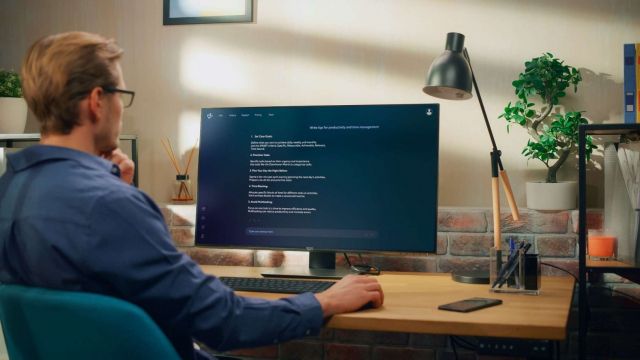Phoenix Education Partners IPO: how to trade Phoenix Education Partners shares

IPO stocks are often highly volatile, and early trading can involve rapid price swings and significant risk.
When is the Phoenix Education Partners IPO date?
The Phoenix Education Partners IPO date is not yet confirmed, but according to reports on 2 October 2025, the holding company is seeking a valuation of up to $1.2bn, with plans to raise approximately $140m. The initial public offering will consist of 4.25m shares, priced between $31 and $33 per share (source: Reuters).
The listing will mark the return of the University of Phoenix to the public markets after eight years under private equity ownership. The company – backed by Apollo Global Management and The Vistria Group – is preparing to list on the New York Stock Exchange (NYSE) under the ticker symbol PXED.
Share breakdown
- Apollo Global Management will sell 3.55m shares but retain majority voting control after the IPO.
- The Vistria Group will sell 700,000 shares, representing a partial exit.
This IPO provides both sponsors with liquidity after owning the education group for nearly a decade. Apollo and Vistria took Phoenix private in 2017 through a $1.1bn leveraged buyout, following years of declining enrolment and heightened regulatory scrutiny.
Why IPO now?
Several dynamics have aligned to make this the right time:
- Private equity monetisation: after eight years of ownership, Apollo and Vistria are seeking partial liquidity while retaining governance control.
- Repositioned business model: the University of Phoenix has streamlined operations, shedding non-core programs and international divisions to refocus on online higher education.
- Favourable market conditions: 2025 has seen strong IPO demand, particularly for education and technology-linked companies benefiting from steady cash flow and brand recognition.
- Failed sale alternative: a planned $550 million sale to the University of Idaho collapsed in 2024, leaving the IPO as the sponsors’ next viable exit strategy.
What is Phoenix Education Partners?
Phoenix Education Partners is the holding company for the University of Phoenix, one of the most recognisable names in US higher education. Founded in 1976, the University of Phoenix pioneered large-scale adult education and distance learning, building one of the country’s earliest fully online learning platforms.
Ownership and background
The institution was publicly traded for more than two decades before being taken private in 2017 by Apollo and Vistria in a $1.1bn buyout. The deal followed several years of declining enrolment amid federal investigations into for-profit universities.
Since then, Apollo and Vistria have overhauled the business, focusing on career-oriented programs, partnerships with employers, and digital course delivery. Today, Phoenix Education Partners operates primarily as an online learning and workforce-skilling platform aimed at adult learners and working professionals.
Core operations
- Online degree programs: undergraduate, graduate, and certificate programs across business, healthcare, technology, and education.
- Corporate partnerships: collaborations with employers to provide upskilling and tuition support for employees.
- Digital infrastructure: proprietary online learning platform and analytics tools for student performance.
- Student support services: counselling, tutoring, and career transition resources.
Financial profile and footprint
The University of Phoenix currently enrols roughly 80,000 students – a fraction of its 2010 peak but a stable base of working adults. The institution’s operating margins have improved under private ownership thanks to cost-cutting, curriculum consolidation, and greater emphasis on short, affordable online programs.
Phoenix Education Partners’ transformation has turned a once-declining brand into a profitable, cash-generating online education provider that now competes with institutions like Southern New Hampshire University and Western Governors University.
Key milestones
- 1976 – University of Phoenix founded in Arizona by Dr John Sperling.
- 1994 – Listed on Nasdaq as Apollo Group, later rebranded Apollo Education Group.
- 2017 – Taken private by Apollo Global Management and The Vistria Group in a $1.1bn buyout.
- 2024 – Sale to the University of Idaho collapses.
- 2025 – Parent company Phoenix Education Partners files for IPO under ticker PXED.
How does Phoenix Education Partners make money?
Phoenix Education Partners derives revenue primarily from tuition and course fees across online and hybrid programs. The business model focuses on high-margin, scalable digital instruction targeting adult learners.
| Revenue stream | Description |
|---|---|
| Tuition and fees | Tuition from enrolled students remains the dominant revenue stream, accounting for the majority of income. Most students pay out of pocket or through employer partnerships. |
| Corporate learning partnerships | Phoenix partners with businesses and government agencies to provide tailored degree or certificate programs. These contracts supply predictable recurring revenue and strengthen industry relevance. |
| Student services and technology licensing | Revenue also comes from student support services and licensing parts of its online learning technology to third-party education providers. |
What might influence the Phoenix Education stock price?
The Phoenix Education stock price after listing will depend on financial performance, investor appetite for education-sector equities, and perceptions of regulatory and reputational risk.
Macroeconomic and sector trends
Investor interest in higher education stocks has revived thanks to stable enrolments in online programs and growing demand for reskilling amid technological change. While traditional universities face demographic headwinds, adult-focused providers benefit from flexible, career-oriented learning models.
However, macroeconomic factors such as US unemployment rates and disposable income affect demand for continuing education. In periods of economic weakness, enrolment tends to rise as workers retrain – a counter-cyclical driver that may support Phoenix Education’s revenue stability.
Company fundamentals
Investors will assess metrics such as enrolment growth, revenue per student, and operating margins. Strong cost discipline and predictable tuition income will be viewed positively. Analysts expect the company to highlight free cash flow and adjusted EBITDA trends post-IPO.
The offering’s relatively small float (4.25m shares) could create initial trading volatility, amplifying early price swings until a stable institutional shareholder base forms.
Regulation and governance
The for-profit education sector in the US remains tightly regulated. Policies concerning student debt relief, federal funding eligibility, and accreditation standards directly affect enrolment and margins. Any future tightening of oversight could impact sentiment.
Apollo’s retention of majority voting control means governance transparency will also be watched closely by institutional investors. The company’s long-term valuation may depend on its ability to demonstrate independence from private equity oversight while operating responsibly.
Reputational factors
The University of Phoenix’s history of regulatory scrutiny still colours perceptions. A successful IPO and transparent corporate reporting could help rebuild trust with investors and students alike. Positive graduate outcomes and partnerships with major employers could further enhance brand value.
Valuation and sentiment
A bull case assumes continued cash generation and stable enrolments, positioning the company as a steady, income-producing education play. A bear case envisions enrolment stagnation or renewed political scrutiny of for-profit education, potentially weighing on the Phoenix Education stock price.
You can keep your finger on the pulse of the markets with expert insight from our in-house analysts. Check out our news and analysis section for more.
How to trade Phoenix Education Partners shares via CFDs
As and when the Phoenix Education Partners launch date happens, trading its shares via contracts for difference (CFDs) allows you to speculate on its price movements – without owning the underlying stock.
How to get started
- Step 1: Choose a platform Use a trusted broker like Capital.com, offering access to thousands of shares, indices and more.
- Step 2: Open an account Provide your personal details, verify your identity, complete a short suitability questionnaire, and set your trading preferences.
- Step 3: Add funds Deposit using card or bank transfer. Start small, and manage your risk carefully.
- Step 4: Track Phoenix Education Partner’s performance Use charts, technical indicators and price alerts to monitor the market and spot trading opportunities.
- Step 5: Go long or short with CFDs Think the price will rise? Go long. Expect a drop? Go short. Apply stop-loss* or take-profit levels to manage your trades.
IPOs can be volatile, especially in the early days of trading. CFDs give you the flexibility to act on price swings in either direction. However, CFDs are traded on margin. Leverage above 1:1 magnifies losses and gains, which amplifies risk. Always use risk-management tools and stay informed with expert insights available on the Capital.com platform and app.
*Standard stop-losses are not guaranteed. Guaranteed stop-losses incur a fee when activated.
Which education and private equity-linked stocks can I trade?
Until the Phoenix Education Partners listing date arrives, traders can consider similar stocks already available on Capital.com that capture exposure to the education and private equity ecosystem:
- Chegg (CHGG) – US-based online learning and study support platform.
- Strategic Education (STRA) – parent company of Capella and Strayer Universities, focused on adult and online learning.
- Pearson plc (PSON.L) – UK-based global education company focused on digital courseware, assessments, and higher-education content, offering broader exposure to the education technology space.
These tradable proxies give investors a way to follow sentiment around online education, adult learning, and private-equity-backed education firms until Phoenix Education Partners begins trading.
FAQs
Discover more upcoming IPOs
Stay informed on upcoming IPOs, market trends, and the newest trading opportunities

Ancestry.com IPO
